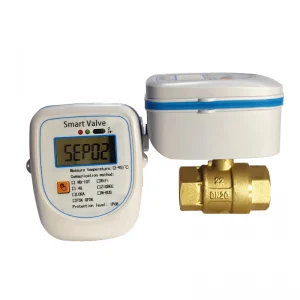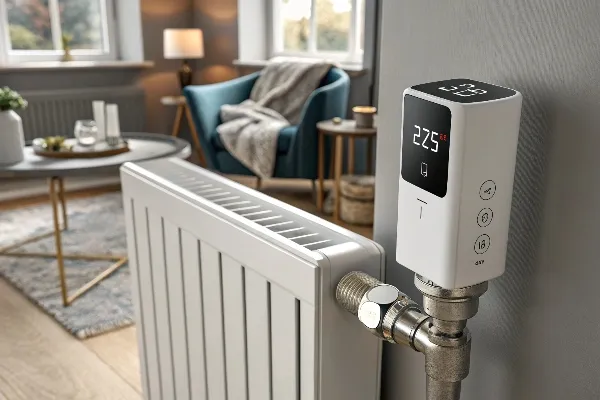Avoid your inquiry is delay response, please enter your WhatsApp/WeChat/Skype along with the message, so we can contact you at the very first time
We will reply you within 24 hours. If for urgent case, please add WhatsApp: +8613188899036, or WeChat: 0531-87968777. Or call 0531-87968777 directly.
* We respect your confidentiality and all information are protected. We will only use your information to respond to your inquiry and will never send unsolicited emails or promotional messages.
Smart valves are revolutionizing industries by offering automated and precise control over fluid and gas flow. But what exactly makes them “smart,” and how do they differ from regular valves?
A smart valve integrates advanced sensors and digital control to monitor and adjust fluid flow based on real-time data, optimizing system performance and energy efficiency.

Smart valve function
The rise of smart technology has led to the development of valves that can do much more than simply open and close. By connecting to automated systems and utilizing sensors, smart valves can optimize flow, pressure, and temperature based on the current conditions. Let’s explore the various uses and benefits of smart valves in modern systems.
Smart radiator valves are gaining popularity in modern homes and buildings. But are they necessary for your heating system?
Smart radiator valves allow you to control the temperature of individual rooms remotely, offering better control over heating, and saving energy by adjusting based on room usage.

Smart radiator valve
In traditional heating systems, you control the temperature for the entire house using a central thermostat. However, this can lead to inefficient heating in rooms that are not in use. Smart radiator valves address this problem by allowing each room to have its own temperature control1.
With a smart radiator valve, you can set different temperatures for different rooms based on when they are in use. For example, your living room can be warmer when you’re at home, while other rooms stay cooler. These valves can be controlled through a smartphone app, making it easier to adjust the heating schedule and even turn off the heat remotely.
Smart radiator valves are ideal for homes with multiple rooms that require different temperature settings or for people looking to optimize their energy usage without sacrificing comfort.
Many car enthusiasts wonder if a valve job2 can boost their vehicle’s horsepower. But what exactly is a “valve job,” and can it really make a difference in engine performance?
A valve job involves reconditioning or replacing the engine’s valves, potentially improving airflow and combustion, which can increase horsepower in certain situations.
A valve job typically includes grinding, resurfacing, or replacing the valves and valve seats to ensure proper sealing and smooth operation. This can improve the engine’s efficiency by enhancing airflow through the intake and exhaust valves. With better airflow, the engine can burn fuel more efficiently, potentially boosting power output.
However, whether or not a valve job will increase horsepower depends on the engine’s condition and how much improvement is needed. In some cases, a valve job may not yield significant gains unless combined with other performance upgrades.
While a valve job can improve the overall efficiency of your engine, the gains in horsepower are usually modest unless other modifications are made.
If your engine isn’t running smoothly, you might wonder if it’s time for a valve job. But how do you know if your engine’s valves need attention?
Signs that you need a valve job include poor engine performance, misfires, or a noticeable loss of power3, often caused by worn or damaged valves.
There are several symptoms that could indicate your engine needs a valve job. One of the most common signs is a loss of power, particularly during acceleration. If the engine is misfiring or experiencing a rough idle, it could be due to air or fuel not properly entering or exiting the combustion chamber. This is often caused by damaged or worn valves.
Another sign is excessive exhaust smoke. If your engine is burning oil or emitting blue smoke from the exhaust, it could mean that the valve seals are damaged, allowing oil to leak into the combustion chamber.
If you notice any of these symptoms, it’s a good idea to have a professional mechanic inspect your engine and determine if a valve job is needed.
The valves play a crucial role in engine performance4, but how exactly do they affect overall performance?
Valves regulate the flow of air and fuel into the engine and the exhaust gases out. Their condition directly impacts engine efficiency, power output, and fuel economy.
Valves are responsible for controlling the intake of air and fuel into the engine and the expulsion of exhaust gases. If the valves are damaged or worn, they may not seal properly, causing air or fuel to escape or exhaust gases to enter the combustion chamber. This reduces engine efficiency and can cause a loss of power, poor fuel economy, and increased emissions.
The condition of the valves is essential for maintaining smooth engine operation. Regular maintenance, such as valve adjustments5 or replacements, ensures optimal engine performance and longevity.
Maintaining the valves in good condition is essential for maximizing engine performance and ensuring smooth operation over time.
Smart valves, whether in heating systems or high-performance engines, are critical for optimizing flow and efficiency. Understanding their function and importance helps you make the best choices for your systems, from smart radiator valves to engine modifications.